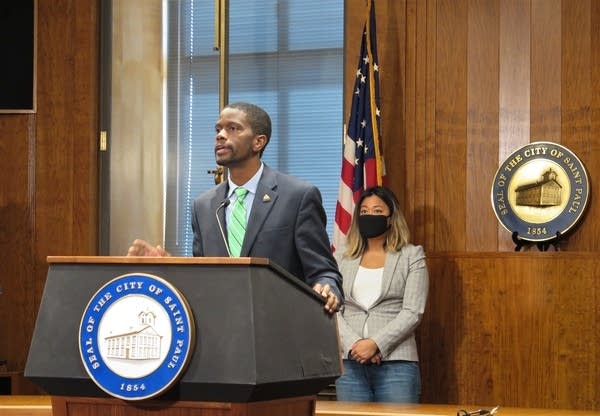Mayor Carter calls for exemption to St. Paul rent control policy

St. Paul Mayor Melvin Carter speaks at a press conference in September 2020. On Tuesday, the mayor said he'd like to see the city's rent control initiative include a 15-year exemption for new housing — and have that exemption be retroactive.
Peter Cox | MPR News 2020
Go Deeper.
Create an account or log in to save stories.
Like this?
Thanks for liking this story! We have added it to a list of your favorite stories.


